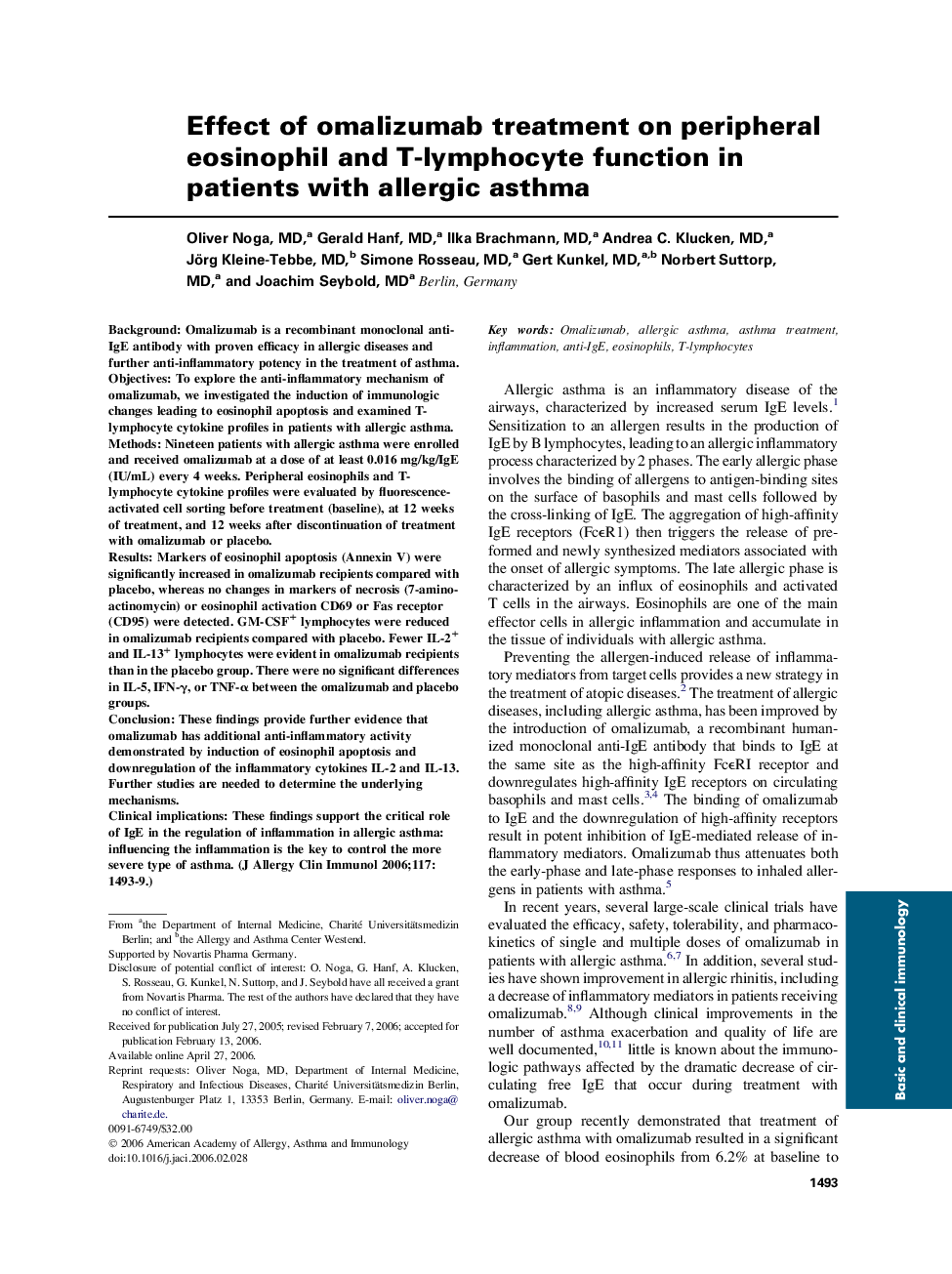| کد مقاله | کد نشریه | سال انتشار | مقاله انگلیسی | نسخه تمام متن |
|---|---|---|---|---|
| 3203720 | 1202010 | 2006 | 7 صفحه PDF | دانلود رایگان |

BackgroundOmalizumab is a recombinant monoclonal anti-IgE antibody with proven efficacy in allergic diseases and further anti-inflammatory potency in the treatment of asthma.ObjectivesTo explore the anti-inflammatory mechanism of omalizumab, we investigated the induction of immunologic changes leading to eosinophil apoptosis and examined T-lymphocyte cytokine profiles in patients with allergic asthma.MethodsNineteen patients with allergic asthma were enrolled and received omalizumab at a dose of at least 0.016 mg/kg/IgE (IU/mL) every 4 weeks. Peripheral eosinophils and T-lymphocyte cytokine profiles were evaluated by fluorescence-activated cell sorting before treatment (baseline), at 12 weeks of treatment, and 12 weeks after discontinuation of treatment with omalizumab or placebo.ResultsMarkers of eosinophil apoptosis (Annexin V) were significantly increased in omalizumab recipients compared with placebo, whereas no changes in markers of necrosis (7-amino-actinomycin) or eosinophil activation CD69 or Fas receptor (CD95) were detected. GM-CSF+ lymphocytes were reduced in omalizumab recipients compared with placebo. Fewer IL-2+ and IL-13+ lymphocytes were evident in omalizumab recipients than in the placebo group. There were no significant differences in IL-5, IFN-γ, or TNF-α between the omalizumab and placebo groups.ConclusionThese findings provide further evidence that omalizumab has additional anti-inflammatory activity demonstrated by induction of eosinophil apoptosis and downregulation of the inflammatory cytokines IL-2 and IL-13. Further studies are needed to determine the underlying mechanisms.Clinical implicationsThese findings support the critical role of IgE in the regulation of inflammation in allergic asthma: influencing the inflammation is the key to control the more severe type of asthma.
Journal: Journal of Allergy and Clinical Immunology - Volume 117, Issue 6, June 2006, Pages 1493–1499